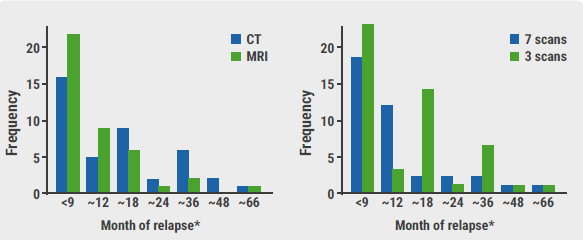In a review of the available research, the statement authors find that patients receiving hormone therapy are at increased risk of heart attack, and the longer the treatment lasts, the greater the risk of cardiovascular disease.
"We as clinicians - oncologists, cardiologists and primary care physicians - taking care of patients on these medications need to be aware of their effects on the cardiovascular system," said the chair of the scientific statement writing group, Dr. Tochi Okwuosa, an associate professor of medicine and cardiology and director of the cardio-oncology program at Rush University Medical Center in Chicago.
"I think because these agents are usually given by mouth or injection every few months, as compared to chemotherapy, it's easy to forget their cardiotoxicity," Dr. Okwuosa told Reuters Health. "And it's important to be aware of the risks of cardiovascular events given that these agents are given for many years at a time for breast cancer and for a lifetime for prostate cancer."
While lowering the risk of dying from breast cancer, these agents may be raising the risk of dying from heart disease, Dr. Okwuosa said. The solution may be to carefully monitor cardiovascular risk factors and to lower the threshold for initiating cardiovascular treatments, she added.
The research review also suggested that patients who already had two or more cardiovascular risk factors, such as hypertension, high cholesterol, obesity, or a family history of heart disease or stroke, had an even greater risk of heart attack or stroke when receiving hormone therapies to combat cancer.
While cardiovascular disease is the leading cause of death in the United States, cancer is a close second, the authors note in Circulation: Genomic and Precision Medicine, and the Centers for Disease Control and Prevention projects that by 2030 cancer will be the leading cause of death. Outside of skin cancers, hormone-dependent cancers, such as prostate and breast cancer, are the most common cancers in the U.S. and worldwide. Improvements in cancer treatments, which include the increased use of hormone related therapies, have led to longer survival in patients with hormone-dependent cancers, the authors add.
Hormone treatments for breast cancer include selective estrogen receptor modulators (SERMs) and aromatase inhibitors (AIs). SERMs block estrogen receptors in cancer cells while letting estrogen act normally in certain other tissues, such as bone and liver. AIs lower the amount of estrogen postmenopausal women produce.
Analysis of the existing research on these therapies revealed that the SERM tamoxifen increases the risk of blood clots while AIs increase the risk of heart attack and stroke. Treatment with multiple hormone targeted medications is associated with an even higher rate of cardiovascular conditions, including hypertension, abnormal heart rhythms and blood clots.
Androgen deprivation therapy has been shown to lead to increases in body fat, cholesterol and triglycerides and to impair the body's ability to process glucose, which may lead to type 2 diabetes. These metabolic changes are associated with a greater risk of heart attacks, strokes, heart failure and cardiovascular death.
Dr. Okwuosa suggests a team-based approach - including oncologists, cardiologists, primary care physicians, dieticians, endocrinologists and other appropriate health care professionals - to treat and monitor these patients.
Many of the cardiovascular issues have been known for a long time, said Dr. Bobby Liaw, an assistant professor in the department of hematology and medical oncology at the Icahn School of Medicine at Mount Sinai and clinical director of genitourinary oncology for the Mount Sinai Health System in New York City. But when doctors are treating cancer, it's easy to focus on the cancer and minimize the cardiovascular risks, said Dr. Liaw, who wasn't involved in the scientific statement.
"The new paper does a really good job of breaking down the risks that come with these therapies," Dr. Liaw said. "For example, is it more dangerous for people who already have a history of cardiovascular disease? The bottom line is, yes."
A big takeaway from this is that "androgen deprivation therapy is not as benign as people like to believe it is," Dr. Liaw said. "Just like you have to be up front about side effects with chemotherapy, you have to be up front with androgen deprivation therapy. There's a tendency to focus on immediate things like hot flashes and fatigue, but you also have to talk about long term side effects like cardiovascular risk, bone density effects, the difficulty maintaining muscle mass."
SOURCE: https://bit.ly/32S5SlT Circulation: Genomic and Precision Medicine, online April 26, 2021.
By Linda Carroll
Posted on
Previous Article
« Tranexamic acid not linked to increased risk of thromboembolism Next Article
Occupational physical activity tied to major adverse cardiovascular events, mortality »
« Tranexamic acid not linked to increased risk of thromboembolism Next Article
Occupational physical activity tied to major adverse cardiovascular events, mortality »
© 2024 Medicom Medical Publishers. All rights reserved. Terms and Conditions | Privacy Policy



